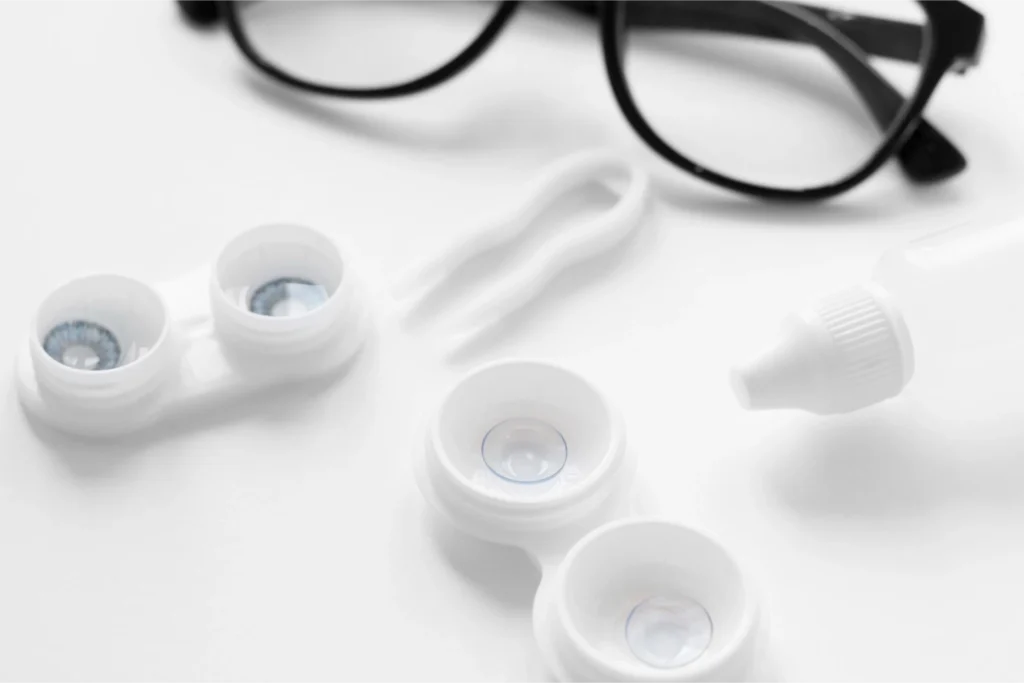One of the most popular and effective surgical treatments carried out nowadays is cataract surgery. Ensuring a smooth and successful outcome requires proper pre-op/operative care for cataract surgery.
This comprehensive guide will provide you with all the information you need to prepare effectively and manage your cataract surgery journey, ensuring a smooth process from start to finish.
Understanding Cataract Surgery
What is Cataract Surgery?
Cataract surgery involves removing the cloudy lens of your eye and replacing it with an artificial intraocular lens (IOL) to restore clear vision. When cataracts substantially impair your ability to perform daily tasks like reading, driving, or facial recognition, this operation is usually advised.
Pre-Op Care for Cataract Surgery
Initial Consultation and Assessment
The pre-op journey begins with a thorough eye examination and consultation with your ophthalmologist. During this visit, your doctor will:
- Assess the severity of your cataract.
- Talk about any medications you are taking as well as your medical history.
- Measure your eye to determine the appropriate IOL for your vision needs.
Cataract Surgery Co-Management
Cataract surgery co management involves a collaborative approach between your ophthalmologist and optometrist. This ensures you receive continuous and coordinated care before, during, and after your surgery. Co-management helps in creating a personalized treatment plan, streamlining communication between healthcare providers, and enhancing the efficiency of follow-up care.
Pre-Operative Tests
Several tests are conducted to ensure you are a suitable candidate for cataract surgery. These may include:
- Visual Acuity Test: To test your visual acuity at different distances.
- Biometry: To measure the shape and size of your eye.
- Ocular Surface Examination: To check for any eye conditions like dry eye that might need treatment before surgery.
Medication Adjustments
Your doctor might advise you to adjust or discontinue certain medications before surgery. It’s crucial to follow these instructions to avoid complications. Common medications to be aware of include blood thinners and medications for diabetes.
Pre-Op Eye Drops
Your ophthalmologist will prescribe eye drops to be used before the surgery. These drops help prevent infection and reduce inflammation. Follow the schedule for these drops meticulously to ensure your eyes are well-prepared for the procedure.
Dietary and Lifestyle Recommendations
Your doctor may provide specific dietary guidelines to follow before surgery. These might include:
- Avoiding Alcohol: Refrain from alcohol at least 24 hours before the surgery.
- Fasting Instructions: You may need to fast for a certain period before the surgery, typically starting the night before.
Preparing Your Home
Make sure your home is ready for your recovery period. Some tips include:
- Make Transportation Arrangements: After the procedure, you won’t be able to drive, so make plans for someone to drive you home.
- Create a Comfortable Rest Area: Set up a comfortable place to rest with easy access to necessary items like medications, water, and a phone.
The Day Before Surgery
- Follow all fasting instructions.
- Confirm your transportation arrangements.
- Get a good night’s sleep to ensure you are well-rested.
Operative Care for Cataract Surgery

The Day of Surgery
Arrive at the surgical center on time and follow all pre-operative instructions provided by your healthcare team. The surgical process includes:
- Anesthetic Eye Drops: These drops numb your eye to prevent pain during the procedure.
- Sedation: You may receive a mild sedative to help you relax.
The Surgery Procedure
Cataract surgery typically takes about 15-30 minutes and involves the following steps:
- Incision: A tiny corneal incision is made.
- Lens Removal: Using ultrasonic waves, the clouded lens is broken up and removed.
- IOL Insertion: The same incision is used to insert the artificial lens.
Post-Operative Care
After the surgery, you will be monitored for a short time before being allowed to go home. Key aspects of post-operative care include:
- Eye Protection: You will be given an eye shield to protect your eye from injury.
- Follow-Up Appointments: Attend all scheduled follow-up appointments to monitor your recovery and ensure there are no complications.
- Eye Drops: Continue using prescribed eye drops to prevent infection and reduce inflammation.
- Activity Restrictions: Avoid strenuous activities, bending over, and lifting heavy objects for the first few weeks.
Learn more: The Latest Techniques for Managing Cataracts
Common Concerns and FAQs
- How Long is the Recovery Period?
Most patients experience significant improvement in vision within a few days, but complete recovery can take up to a few weeks.To guarantee appropriate healing, heed your doctor’s advise and show up for all follow-up appointments.
- Are There Any Risks?
While most cataract surgeries are safe, there are always some hazards involved. Retinal detachment, hemorrhage, and infection are a few of these. Discuss these risks with your doctor and understand the symptoms to watch for.
- When Can I Resume Normal Activities?
You can usually resume light activities within a day or two, but avoid strenuous activities for a few weeks. Specific recommendations will be given by your doctor based on your unique situation.
- How to Choose the Right IOL?
Your doctor will help you choose the best intraocular lens based on your lifestyle, vision needs, and any existing eye conditions. Options include monofocal lenses for clear vision at one distance, and multifocal or accommodative lenses for clear vision at multiple distances.
- How to Manage Anxiety and Stress Before Surgery?
It is normal to feel anxious before surgery. Talk to your doctor about your concerns, practice relaxation techniques such as deep breathing or meditation, and consider discussing your fears with a counselor or support group.
Vision Gallery is Here to Help!
Understanding pre-op/operative care for cataract surgery and the benefits of cataract surgery co-management can significantly enhance your experience and recovery.If you’re preparing for cataract surgery and need expert guidance, contact Vision Gallery today. Our team of experienced professionals will provide you with comprehensive care and support throughout your cataract surgery journey. Schedule your consultation with Vision Gallery now by dialing 281-377-0219 and take the first step towards clearer vision!






